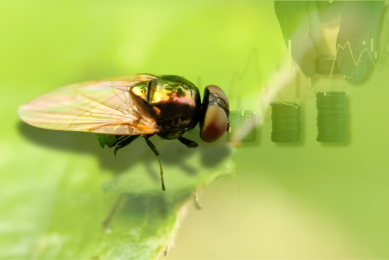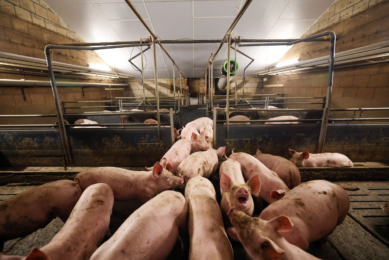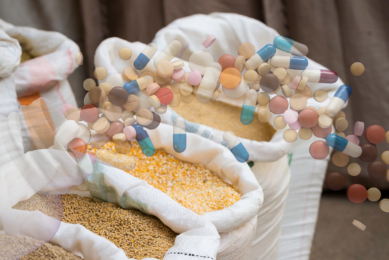EU funding opportunities for the insect farming sector
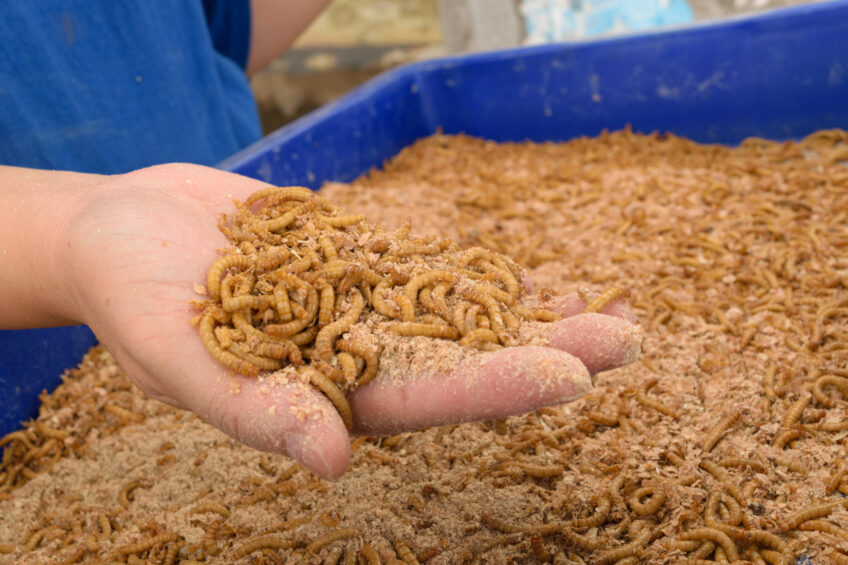
More than €1.5 billion has already been invested in EU insect-producing companies, which has contributed to the creation of thousands of green jobs in rural areas said Antoine Hubert, IPIFF Second Vice-President during a recent webinar.
The sector currently employs more than 3,500 people, with at least 1,000 of whom are directly employed by insect-producing companies, according to Antonine Hubert. “Insect farming had become the fastest-growing sustainable protein production sector in the EU amongst other emerging industries, taking into account the number of production facilities that have been built over the last decade.”
“This clearly shows that financial support for EU insect SMEs has paid off: We’re addressing European agriculture’s most pressing challenges, while we continue to create thousands of jobs across the Union,” he added.
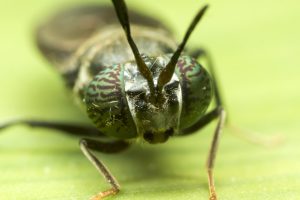
Insect farming: Fasting growing sector
Antonine Hubert, International Platform of Insects for Food and Feed (IPIFF) second vice-president, said insect farming has become the fastest-growing sustainable protein production sector in the EU amongst other emerging industries, taking into account the number of production facilities that have been built over the last decade.
Boosting rural economies
Hubert said farmed insects could generate regional products using local untapped resources; had a low environmental footprint, especially in terms of land and water use and had a positive impact on the preservation of biodiversity. It can bring diverse opportunities for farmers involved in animal husbandry and can facilitate generational renewal in agriculture and boost rural economies.
Commenting on EU financing for insect producing companies, Hubert said substantial funds were coming via EU funded research and national funds with some support via the Common Agricultural Policy, Regional Development Plans and national recovery plans.
Yet to achieve full potential
And the sector is far from having achieved its full potential due to regulatory challenges, he added, despite products now being sold as food, feed for aquaculture, poultry and pigs. The new framework should provide further opportunities.
Ana Ruiz, from the Circular Bio-Based Europe Joint Undertaking (CBE JU), talked about how the organisation is funding projects that deliver bio-based solutions – materials and products made from waste and biomass – in an innovative, sustainable and circular way.
Scaling up technologies
Ms Ruiz told the webinar that the organisation was working with the insect sector in the development and validation of technologies, but also worked in scaling up and demonstrating technologies and supporting first-of-its-kind product facilities in Europe.
Ruiz touched on some case studies involving the insect sector covering insect-based proteins:
- YNSECT – A demonstration of industrial scale production of nutrient resources from mealworms to develop a bioeconomy with YNSECT – which is running from June 2019 to June 2025 near Amiens, Northern France, and has seen a CBE JU contribution of €19.6m. Strategically located next to an existing agro-industrial site and on several logistical pathways it has been able to reduce the sensibility to insect feed price volatility. The plant is able to produce more than 5,500 tons of live insects per month that is, in turn, being processed into 1,500 tons of proteins and 400 tons of oil per month, reaching a production rate never demonstrated before for at an insect’s proteins production plant.
- InnoProtein: New sustainable proteins for food, feed and non-food bio-based applications. This project tackles the urgent need for new and sustainable protein sources with high nutritional quality, healthy and functional properties as the EU is currently particularly vulnerable as it imports 70% of its protein-rich crops. InnoProtein, which has received a CBE JU contribution of €4.59m, addresses this challenge by tapping into unexploited sustainable protein sources to accelerate Europe’s moves towards protein self-sufficiency. It aims to obtain single-cell proteins from sources including microalgae, bacteria and fungi, as well as protein from insects. They will be used in food, animal feed and non-food bio-based products, such as stimulants and plastics within a circular and zero-waste perspective. The project is due to run to May 2027.
Insects used to transform biomass and/or deliver other bio-based products case studies being supported include:
- The development of innovative biotic symbiosis for plastic biodegradation and synthesis to solve their end-of-life challenges in the agriculture and food industries. Working with SME’s, this RECOVER project, which concluded in May, has been developing biotechnology-based he processes, involving the combined action of new enzymes, microbial communities, insects and earthworms, for sustainable management of plastic waste from food packaging and agricultural applications. This new bio-recycling route results in biofertilisers and bioplastic formulations for application in agriculture (mulching films, sticks, pots), food packaging (trays, rigid containers) and coatings based on chitin/chitosan extracted from insects. RECOVER solutions are suitable for adding value to the plastics entering waste management systems that are currently landfilled or incinerated, and for reducing the amount of non-biodegradable plastics reaching the environment.
- The InDIRECT project – a 3-step bio-refinery model used to convert the varying plant-based side stream of feedstocks into a homogenous biomass. In a unique and innovative approach, Black Soldier Fly and Lesser Mealworms are used for this conversion. The resulting insect biomass is processed (fractionalised) into crude extracts, which will then be purified and converted into new products and compounds, such as protein and oligopeptides, Lipids, chitin, chitosan and derivatives, N-light compost and minor compounds.
- Supporting the ZELCOR (Zero Waste Ligno-Cellulosic Biorefineries by Integrated Lignin Valorisation). The objective of this 5 year project was to demonstrate the feasibility of transforming lignocellulose biorefinery recalcitrant side-streams into high added-value products. The original plan was to combine chemical and enzymatic catalysts with insect-based conversion, in order to produce bioactive phenolic extracts, aromatic chemical intermediates and functional biopolymers. But the main achievements, she said, were the production of new biocatalysts by exploring microbial diversity, the design of new routes for lignin conversion, the elucidation of structure-properties relationships and the assessment of five new value chains in terms of carbon footprint, economics and safety.
The webinar was set up by the International Platform of Insects for Food and Feed (IPIFF), an EU non-profit organisation which represents the interests of the insect production sector. You can see the webinar:




